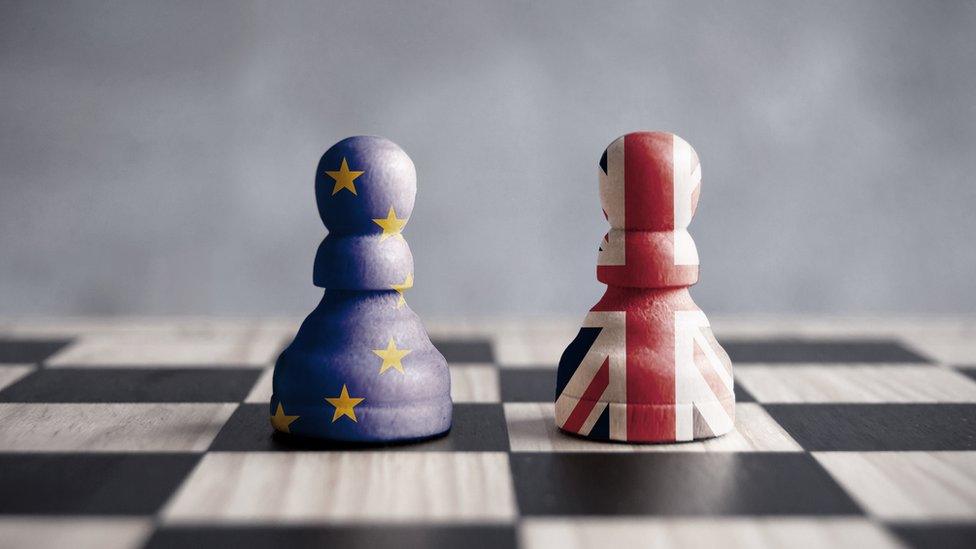Brexit backstop: Will the DUP do a political 180?
- Published
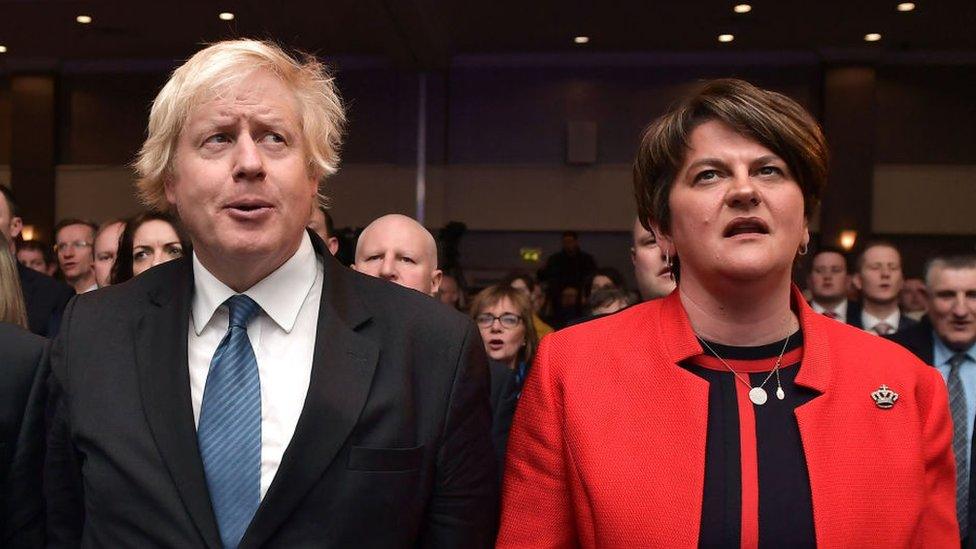
Boris Johnson and Arlene Foster at the DUP's annual conference in 2018
Is the DUP about to do a 180 and support checks in the Irish Sea as part of a Brexit deal?
Political u-turns aren't unheard of, after all.
But in this case, it seems a good way off.
Newspaper reports that the DUP has privately shifted its red lines on the backstop were quickly - and publicly - panned by senior party figures.
But is that the full story?
It's important to set out what the DUP has said it will accept, and how its tone has changed in recent days, causing a whiff of hope about a potential deal.
The party has always made protecting the union its main priority, delivering Brexit second - and in the early stages of the negotiations insisted there could be no deal that allowed any splits to develop between Northern Ireland and Great Britain.
It had, however, said it could accept certain regulatory differences that didn't damage trade with Great Britain or undermine the Union.
The Northern Ireland Assembly would also need to have oversight of the process.
While continuing to oppose the backstop, the party has softened its language, saying it would be open to all-island "arrangements" on food standards and animal health, which could partially remove the need for some checks at the land border.
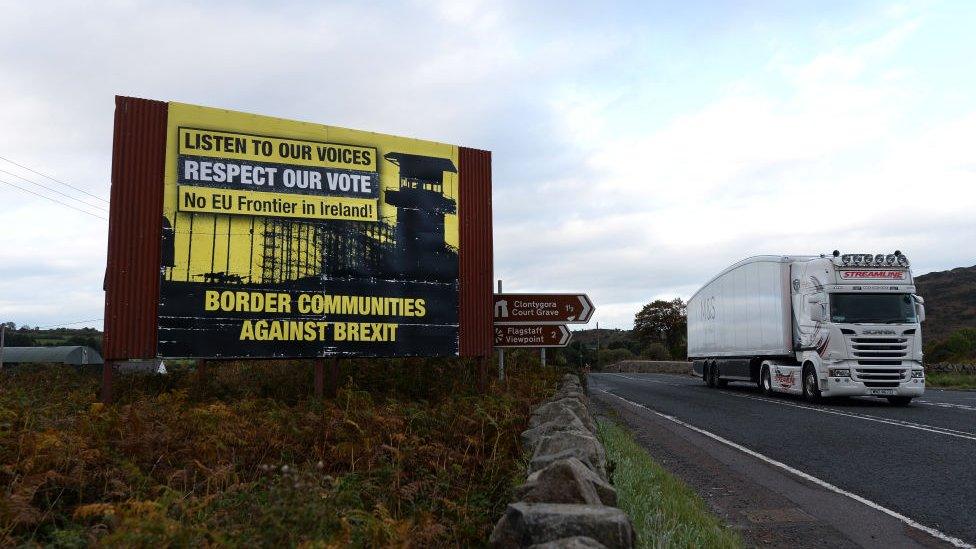
While continuing to oppose the backstop, the DUP has softened its language
That would mean Northern Ireland continuing to follow some EU rules and accepting new checks on some goods coming in from Great Britain
They haven't set out precisely what the arrangements could look like - don't expect them to either.
The Times story hinted the DUP could accept EU rules in other areas too - which is perhaps why the party has pushed back so hard.
If the DUP is going to to back anything that even slightly resembles NI only accepting EU rules, they will need to be able to sell it.
Their ideas are being talked about by the prime minister as well.
Boris Johnson has found himself boxed in by Parliament, and by demanding the backstop disappear, he has few options left when it comes to getting a deal by his Halloween deadline.
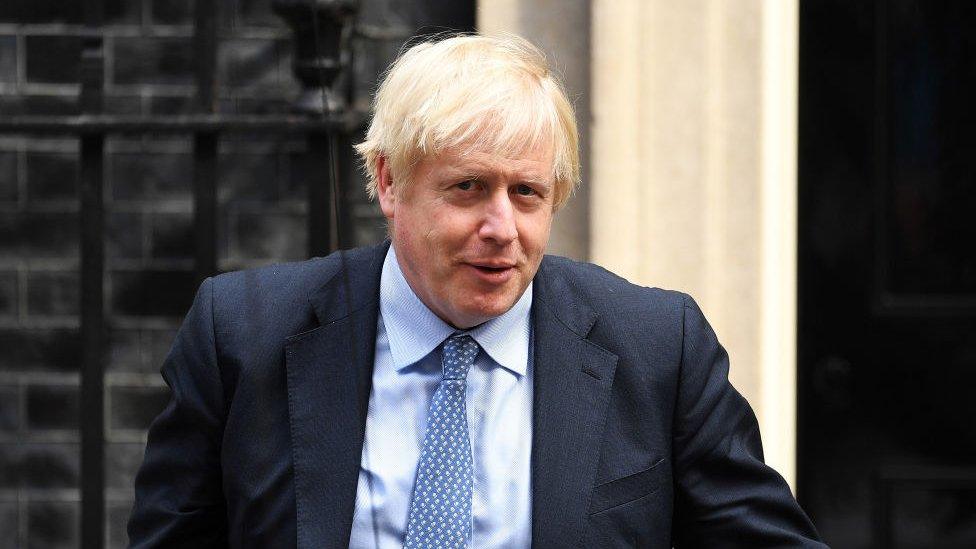
The prime minister demanded that the backstop disappear
So is a compromise of sorts coming down the tracks?
There have certainly been warmer words this week from some in Brussels, with Ireland's EU commissioner Phil Hogan saying he believed there is "movement on both sides".
But we still don't know quite how the landing zone for a last-minute deal will look.
Will the DUP and Boris Johnson, despite their protestations, go further than all-island "arrangements" and move towards a Northern Ireland-specific solution?
What will the EU be prepared to sign up to?
If Stormont has the power to refuse to accept new EU regulations on food standards that would fall short of guaranteeing no hard border in the future.
Could Stormont have a consultative role on those EU issues which would apply in Northern Ireland?
Bear in mind that would require Stormont to get back up and running first, but there is a theory that if a deal is reached, there would be a two-year transition period which could allow some breathing space for devolution to be restored in order for Stormont to play its part.
There's also the question of trust: The DUP say they do not believe Boris Johnson will turn his back on them and sign up to anything they disagree with.
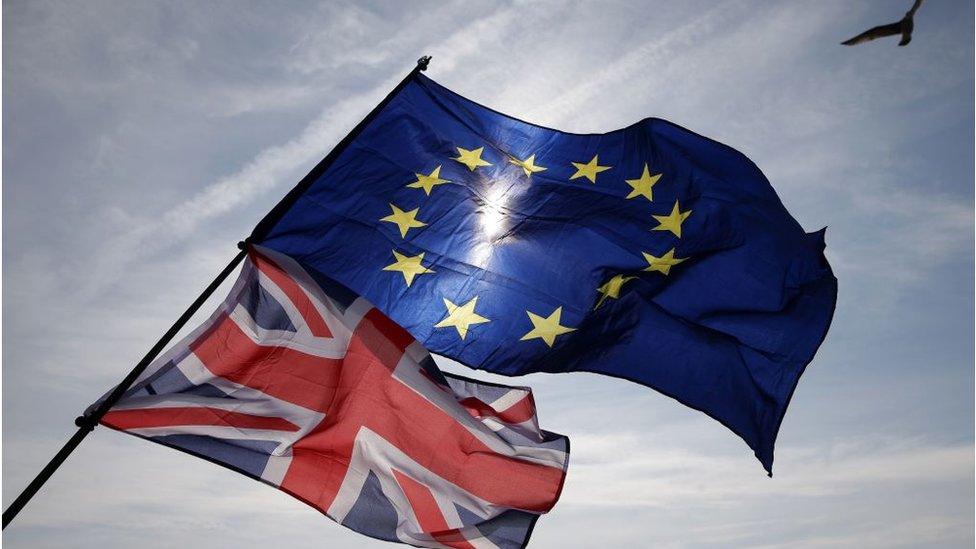
Others aren't so sure.
Cynics might say stories in the national press that the DUP is softening are an attempt by someone to bounce the party into accepting something else.
Right now, political tactics are being deployed on all sides.
No-one wants to be seen to budge too much.
Despite what the key players will all say publicly, they know someone will have to give more, and accept more.
Behind the scenes, what is being discussed could be very different - as pressure is applied for an agreement to take shape.
Boris Johnson has said he really wants to leave the EU with a deal on 31 October.
It may now be a question of who can shout louder at him about what that deal should look like, in the seemingly short time that's left.
- Published13 September 2019
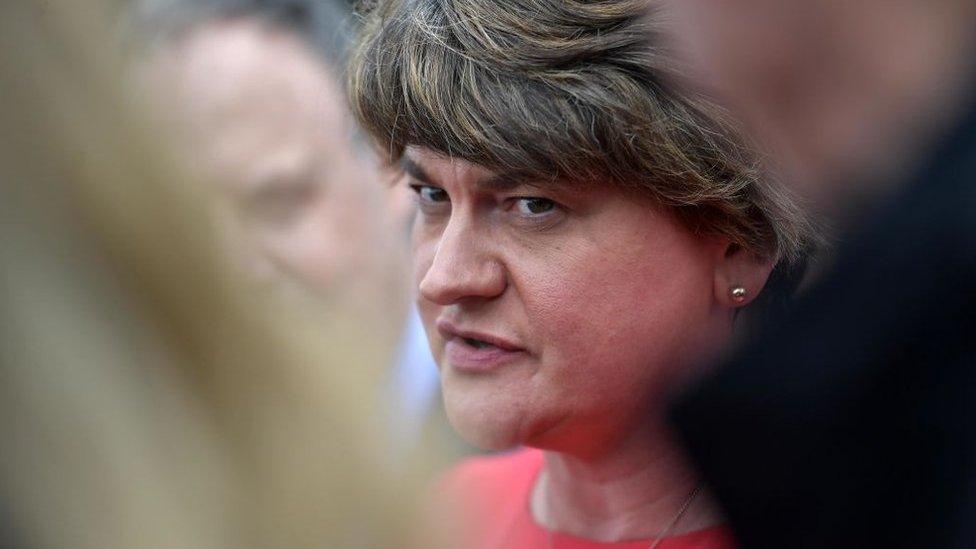
- Published9 September 2019
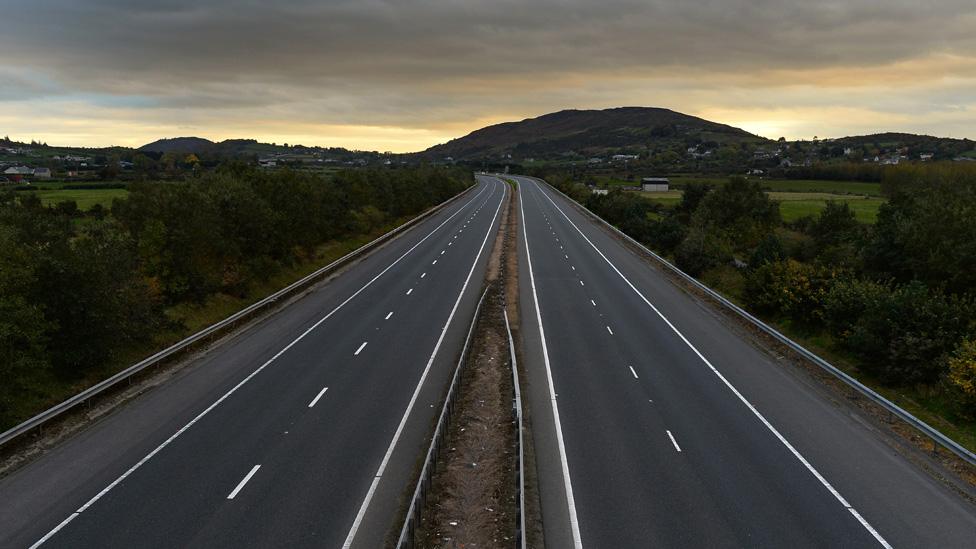
- Published16 October 2019

- Published12 September 2019
